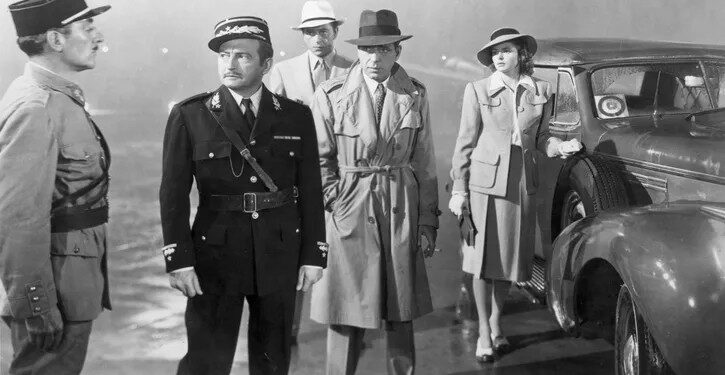Released in 1942, “Casablanca” stands as one of the most iconic films in cinematic history, a masterpiece that transcends its wartime origins to become a timeless exploration of love, sacrifice, and moral complexity. Directed by Michael Curtiz and starring Humphrey Bogart and Ingrid Bergman, the film captures the turbulent spirit of World War II while telling an intensely personal story of lost love and redemption.
Set in the Moroccan city of Casablanca during the early years of World War II, the film centres on Rick Blaine (Bogart), a cynical American expatriate who runs a popular nightclub. Rick’s world is turned upside down when Ilsa Lund (Bergman), the woman who broke his heart in Paris, arrives with her husband Victor Laszlo (Paul Henreid), a Czech resistance leader fleeing from Nazi persecution.
The movie’s brilliance lies in its nuanced characters and complex moral landscape. Rick, initially presented as a disillusioned and seemingly neutral observer, gradually reveals a deep sense of moral conviction. His famous line, “Here’s looking at you, kid,” has become synonymous with bittersweet romantic sacrifice. The film explores themes of personal integrity versus individual desire, asking whether individual happiness can or should be sacrificed for the greater good.
Cinematically, “Casablanca” is a triumph of studio-era filmmaking. Its sharp black-and-white cinematography, memorable dialogue, and impeccable performances create an atmosphere of romantic melancholy and political tension. The supporting cast, including Claude Rains as the delightfully corrupt Captain Renault, adds depth and humor to the narrative.
The film’s musical score, particularly the haunting “As Time Goes By,” has become inseparable from the story itself. The song symbolizes the enduring nature of love beyond immediate circumstances, a theme central to the movie’s emotional core.
Perhaps most remarkable is how “Casablanca” manages to be simultaneously a war film, a romance, and a meditation on personal choice. Its final scene, where Rick makes the ultimate selfless decision, remains one of cinema’s most poignant moments. By choosing the greater good over personal desire, Rick transforms from a cynic to a hero.
Decades after its release, “Casablanca” continues to resonate. It reminds us that true heroism often involves quietly making difficult choices, and that love can be both a source of profound pain and extraordinary nobility.
newshub



Recent Comments